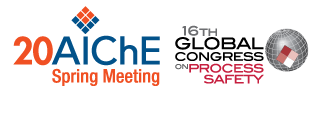

Black liquor solutions from the kraft paper pulping process are comprised of an intricate mixture of both organic and inorganic salts, have a complex chemistry, and are highly corrosive due to their alkaline nature. Scaling is a significant issue during the evaporation process of weak black liquor due to the inverse temperature behavior of sodium salts. Because of the complex nature of these solutions, a rigorous thermodynamic model that can be reliably used to predict the boiling point elevation and scaling behavior is often difficult to obtain. This work seeks to correctly identify the appropriate chemistry and to use the thermodynamic framework of the electrolyte NRTL (eNRTL) model to correlate vapor-liquid and solid-liquid equilibrium data to accurately predict the boiling point elevation of black liquor solutions. This model connects the nonideality of the solutions with the composition by using two binary interaction parameters for each electrolyte-electrolyte and molecule-electrolyte pair in the system. Completion of an accurate model can aid in the mitigation of scaling issues that arise during the evaporation process and can offer a rigorous support of enhancements to the current chemical recovery cycle.
Presenter(s)
Once the content has been viewed and you have attested to it, you will be able to download and print a certificate for PDH credits.
If you have already viewed this content,
please click here
to login.
Language
Pricing
Individuals
| AIChE Member Credits | 0.5 |
| AIChE Pro Members | $19.00 |
| AIChE Graduate Student Members | Free |
| AIChE Undergraduate Student Members | Free |
| RAPID Members | Free |
| AIChE Explorer Members | $29.00 |
| Non-Members | $29.00 |
